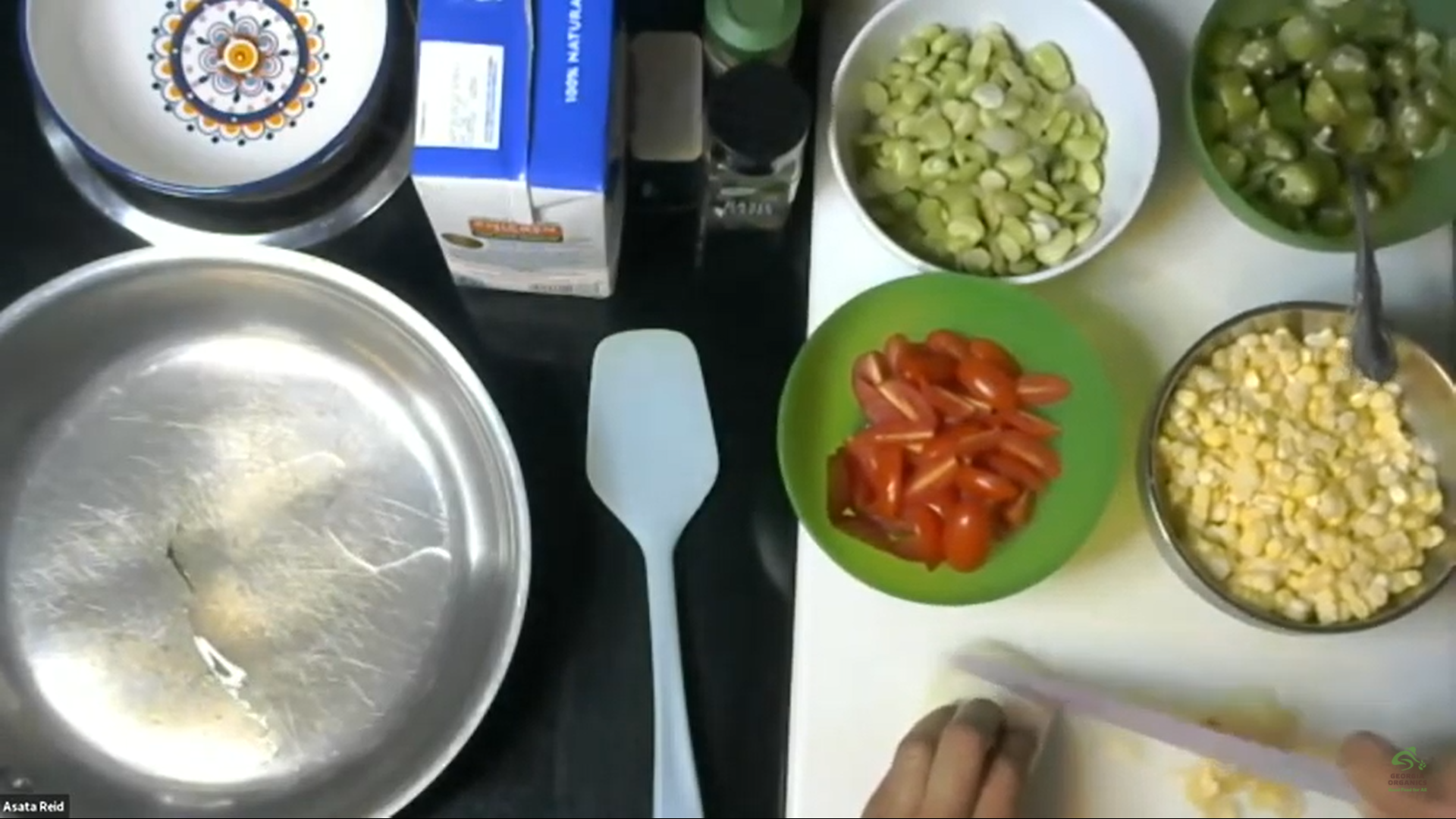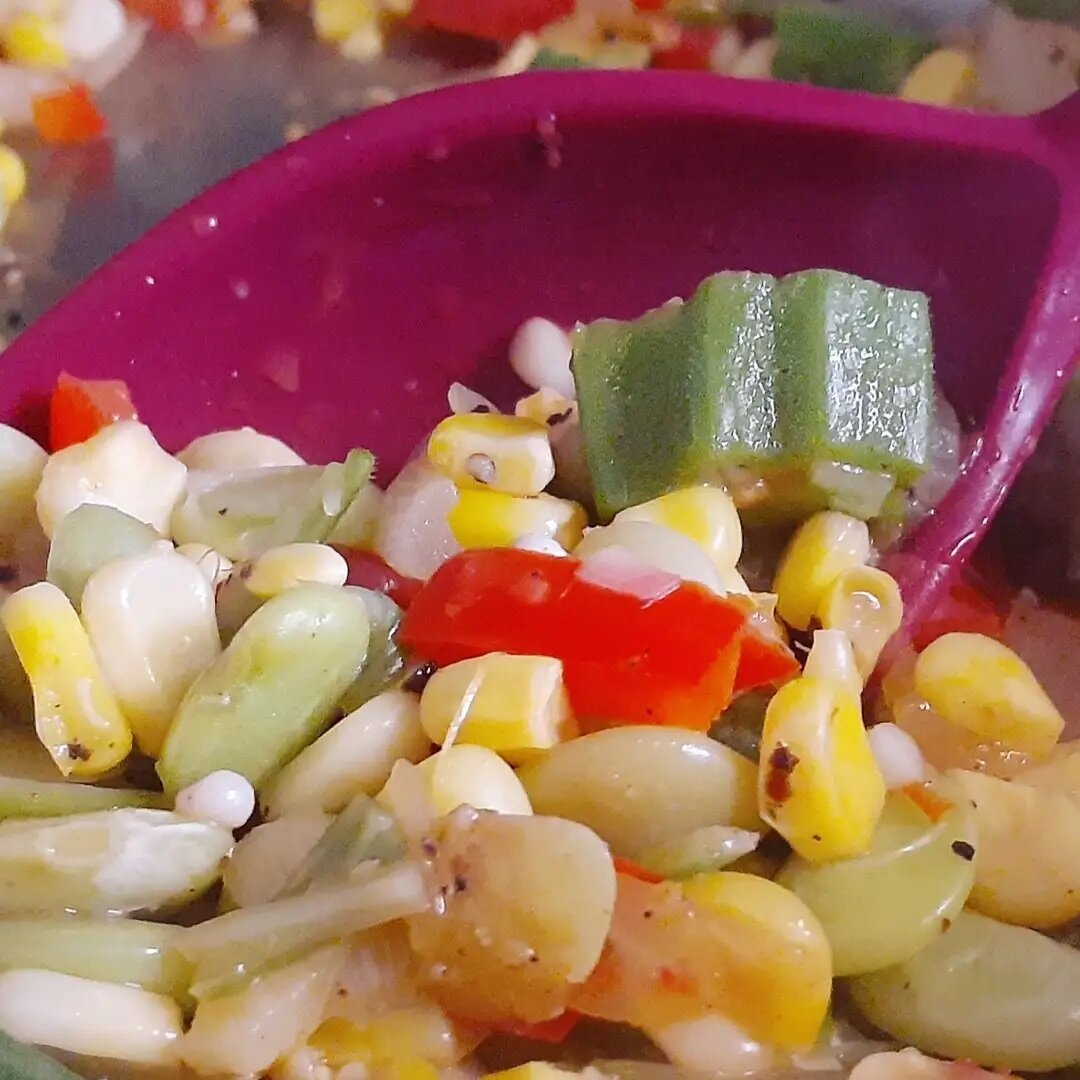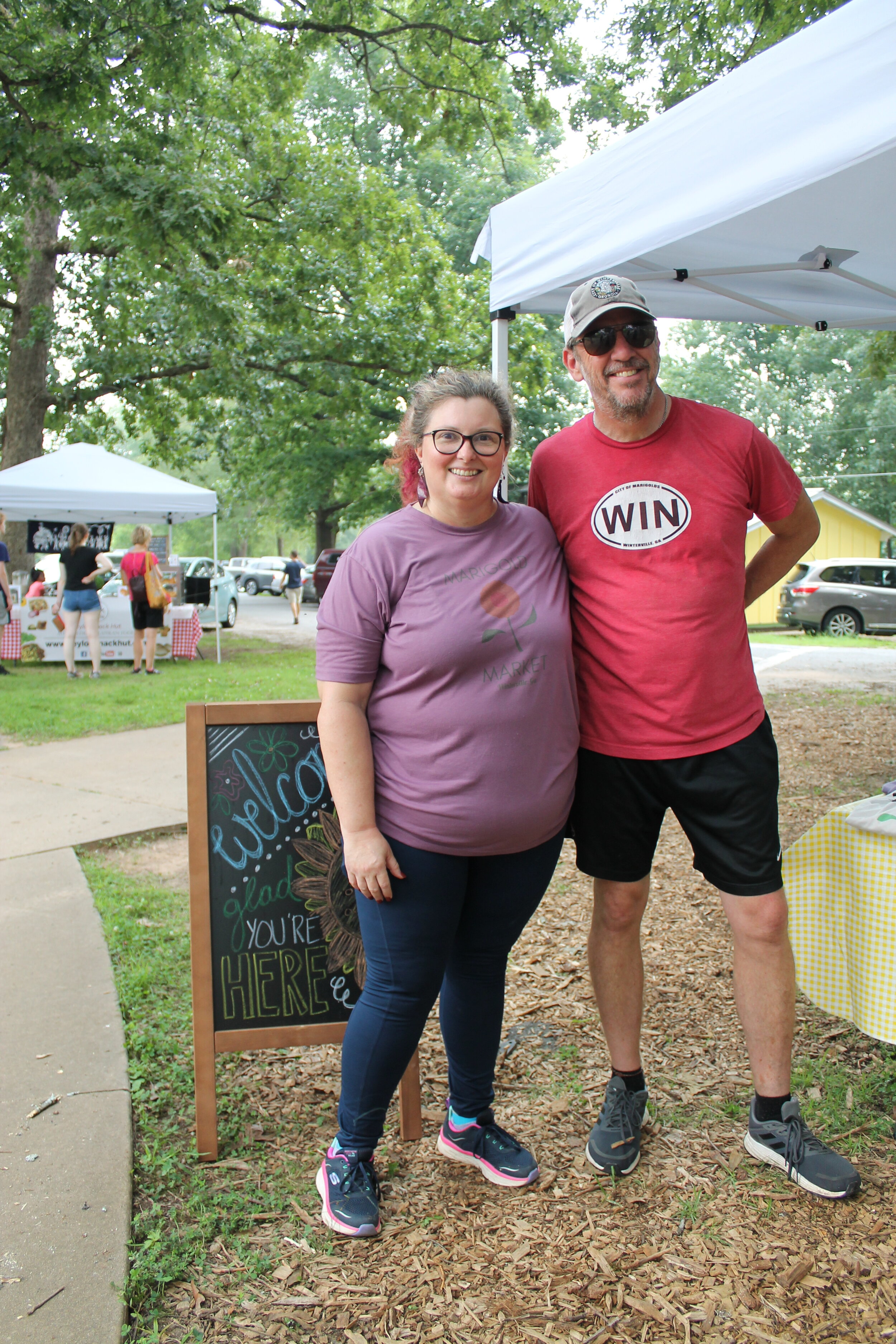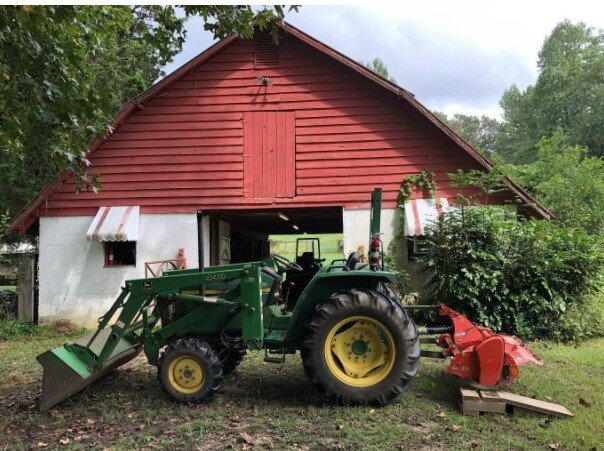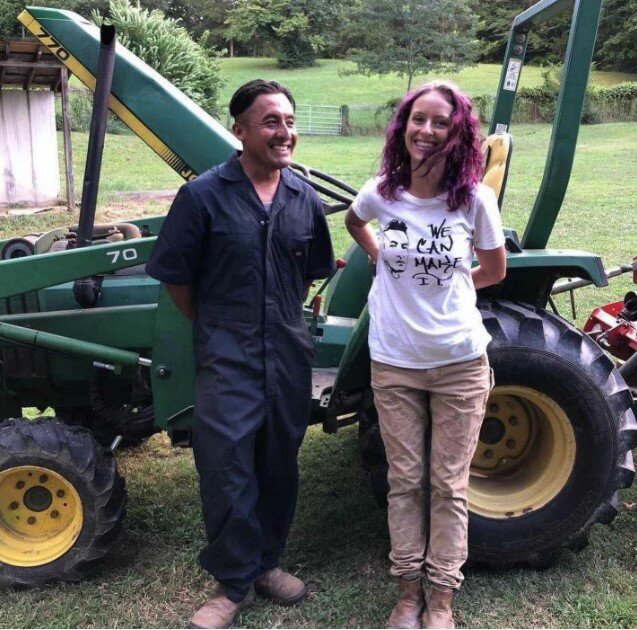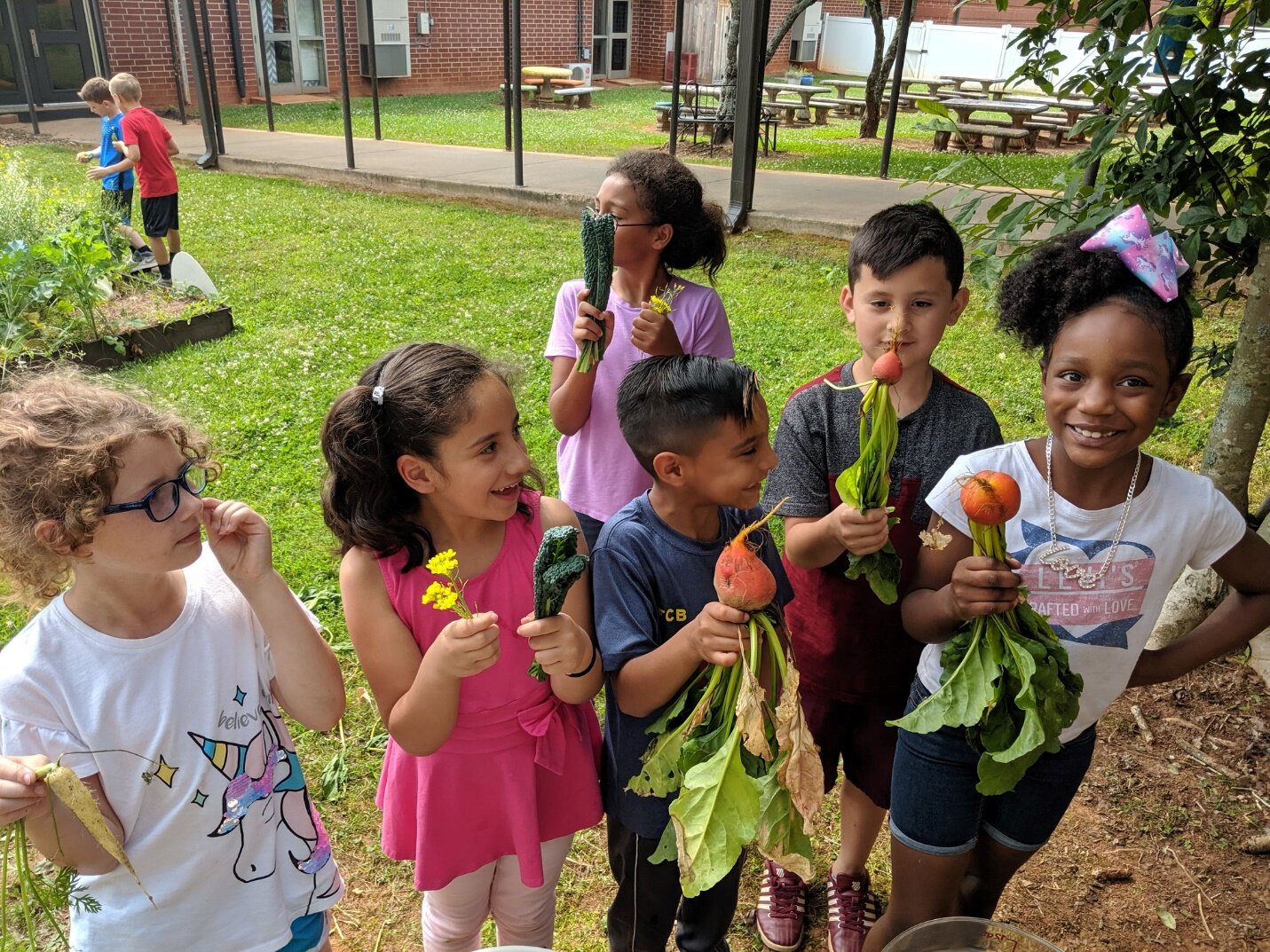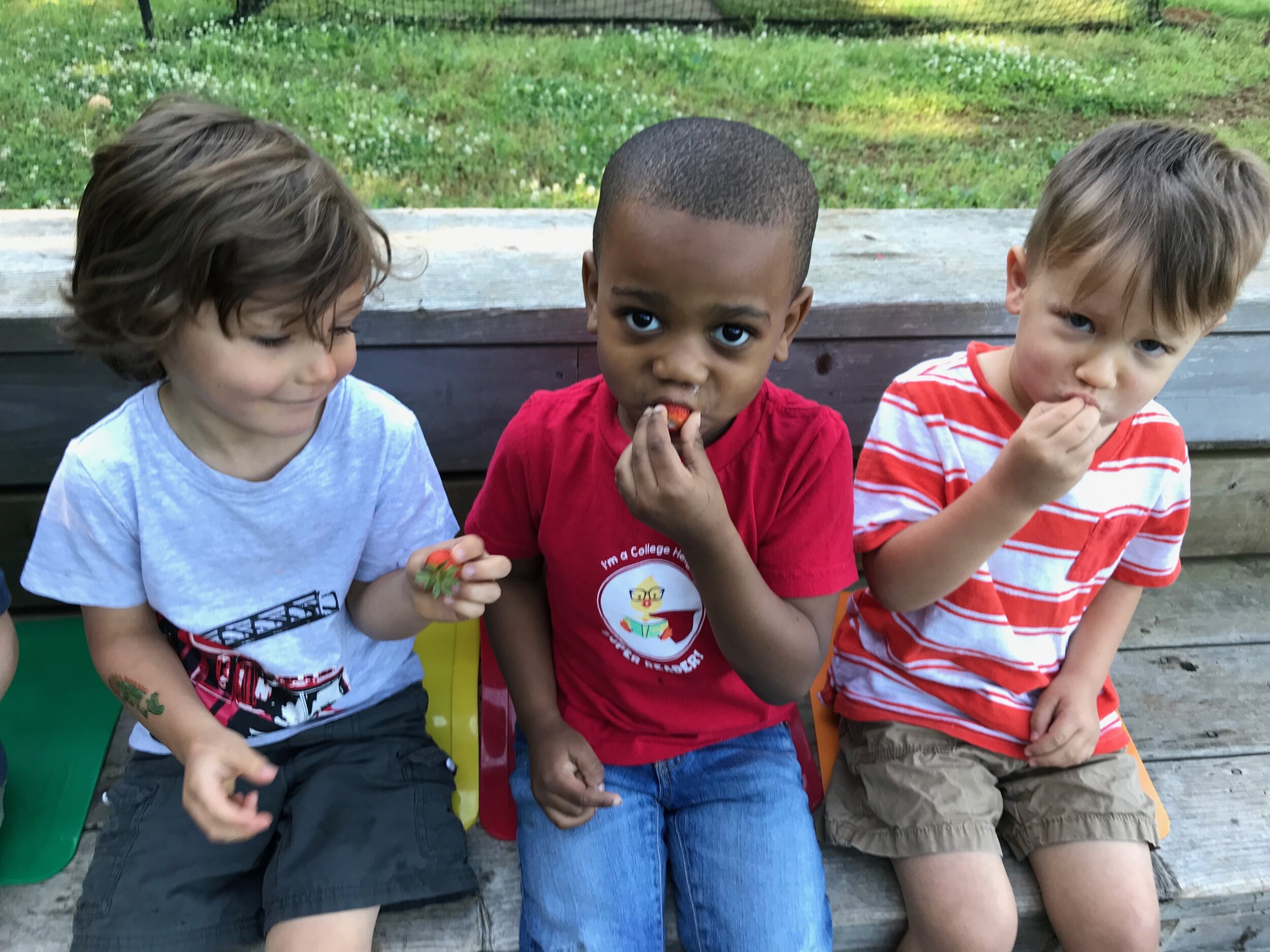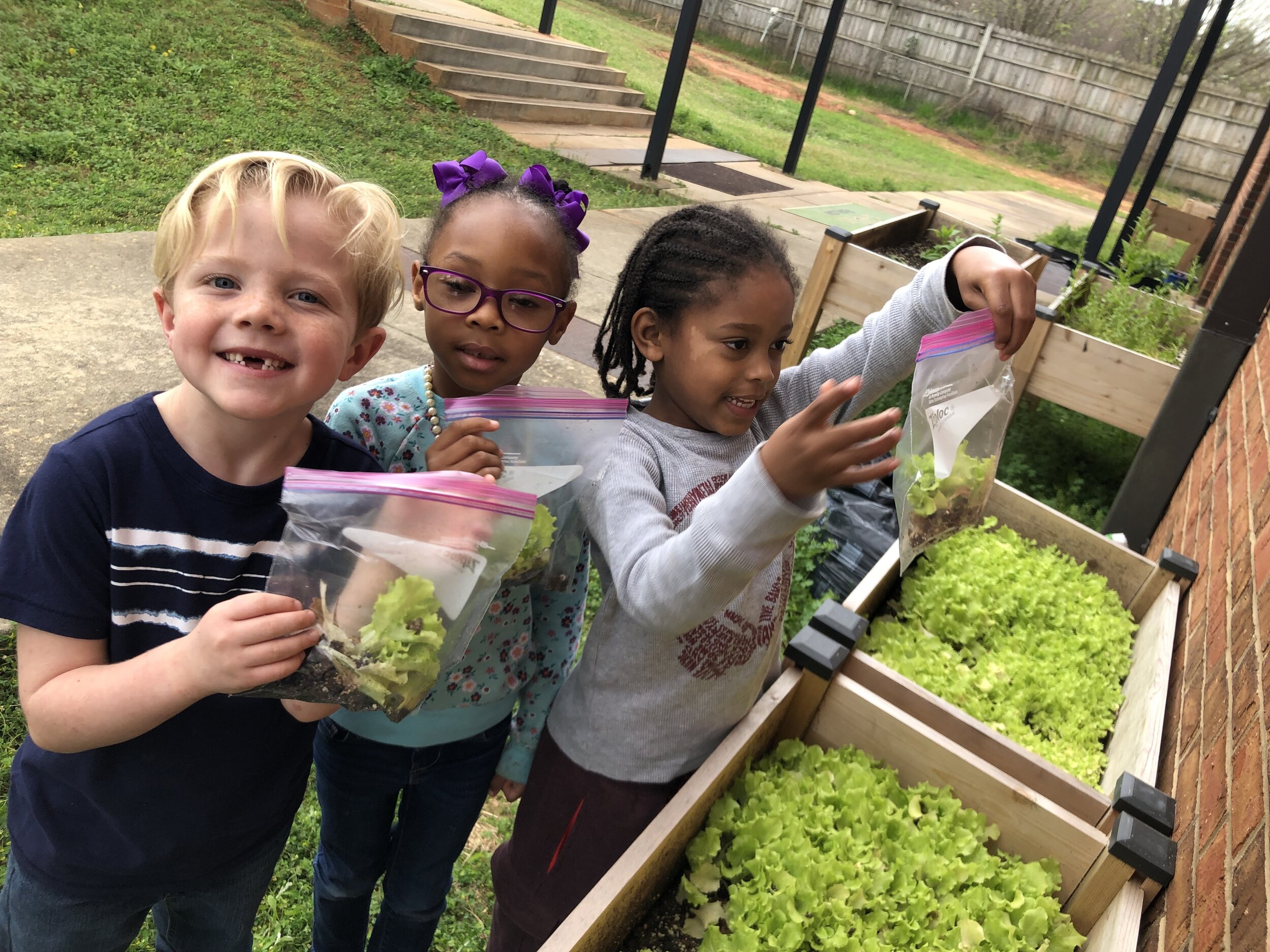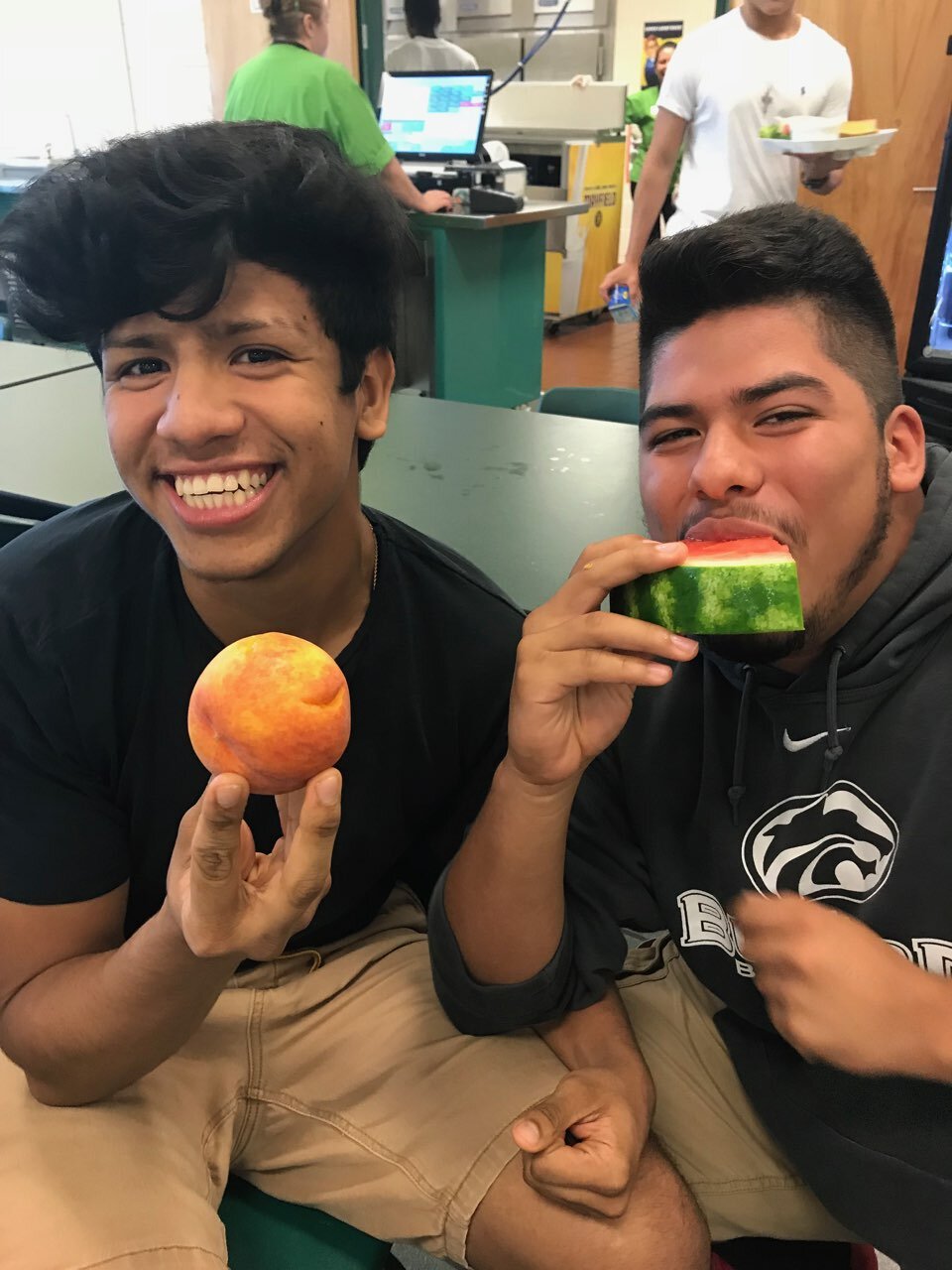By Kimberly Koogler
Kimberly Koogler is the Farm to School Coordinator at Georgia Organics.
For the grand finale of our October Farm to School Month Wednesday webinar series, we gathered at the Parkside Elementary School garden with Jenna Mobley of Tending Our Common Ground, Tasha Gomes of FoodCorps Georgia, and Suzanne Welander, a founding member of Parkside Elementary School’s garden.
To honor and get grounded in the garden space we were in, Suzanne Welander told us all about the history and evolution of Parkside’s school garden, including all of the many and various contributions made by so many different community members over the past 15 years.
Tasha Gomes Parkside Elementary Garden
We spent a lovely hour together, learning about culturally responsive teaching practices, talking about our favorite meals, exploring how that simple prompt can be turned into a culturally relevant and rich garden project for your whole class that promotes each student’s individual identity and celebrates the diversity in your classroom.
If you were not able to join us for this, I really encourage you to watch the recording. It will not only inspire you, it will also leave you feeling good. Here are some golden nuggets to take away:
Culturally responsive teaching…
Honors those who came before us and those who are with us presently.
Acknowledges and promotes each of our individual student’s identities and celebrates diversity DAILY.
Engages in student-centered instruction, centered on students’ unique interests, abilities, and life experiences.
Connects to, affirms, uplifts, and validates your students’ family and community traditions and knowledge.
Are you a school garden leader having trouble getting teachers or other school community members engaged and invested in your school garden? Ask them how they want to use it and what they need to do so! How would the school garden best serve them and meet their needs?
A favorite children’s book to open the conversation about food and culture is The Ugly Vegetables by Grace Lin.
Have students catalog what they eat all week in a food journal and/or have them choose a favorite meal. Then you can plan your garden together, choosing plants that make up part of the students’ favorite meals.
There are many opportunities to invite parents into this process, too.
You could compile recipes brought from home into a class cookbook.
Encourage and model for students how to respectfully express curiosity about their peers and their lived experiences.
Tasha Gomes mealtime traditions (photo by Jenna Mobley)
To learn more about FoodCorps Georgia, visit foodcorps.org, and follow them on social media @foodcorps_ga.
To learn more about Georgia Organics, visit georgiaorganics.org and follow us on social media @GeorgiaOrganics and at facebook.com/GeorgiaOrganics.

























